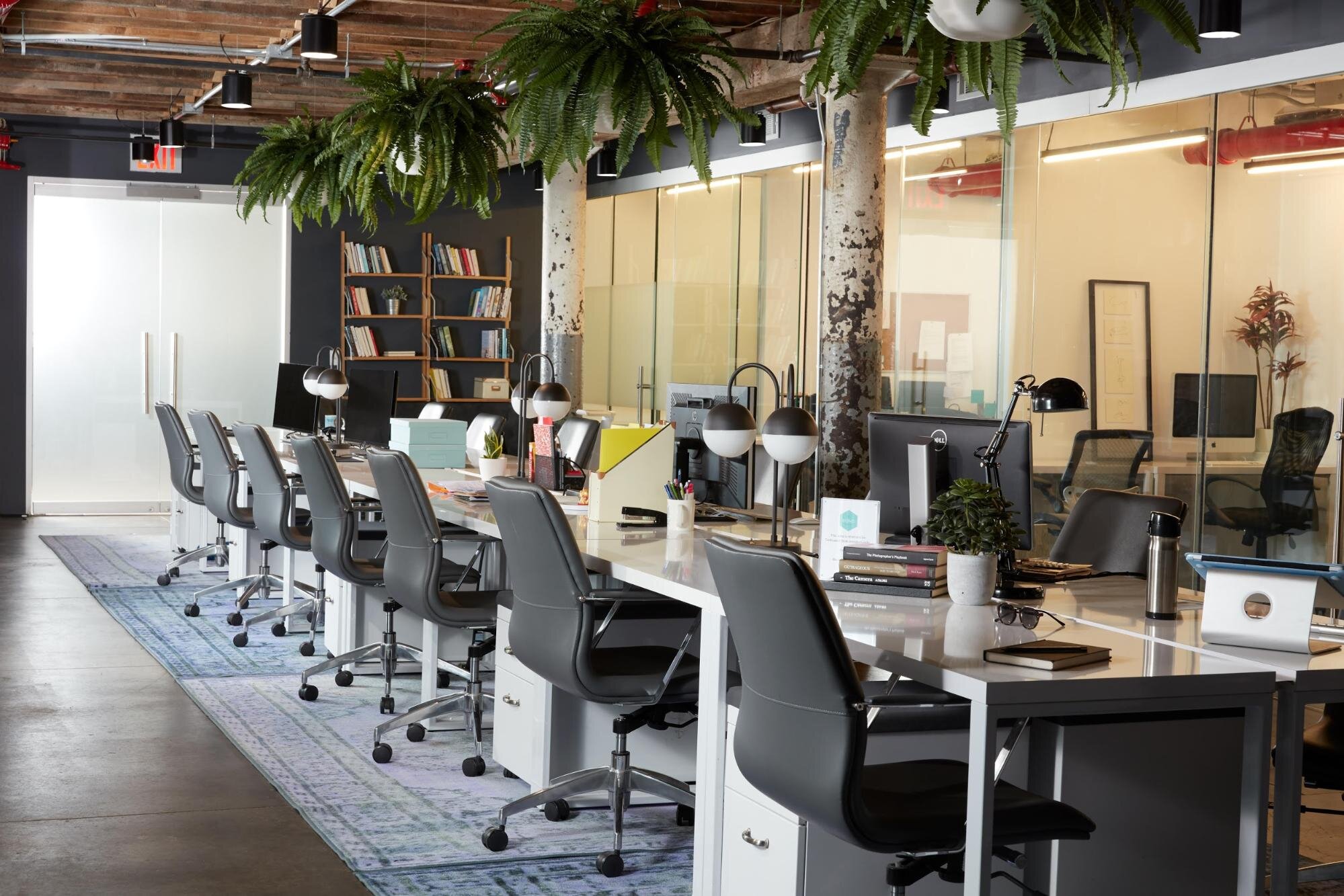What is a Co-working Space?
A co-working space is a shared work environment where you can rent office or desk space. You will be surrounded by other professionals who are working on their own businesses/projects, and there’s usually some socializing involved with common coffee areas and such.
A co-working space is typically more flexible than a shared workspace, and you can usually enjoy lower rates on rent by purchasing ‘passes’ rather than renting an actual office.
What is Shared Workspace?
Shared workspaces are places like serviced offices where you can rent office space for a limited time. Some shared workspaces will offer co-working plans, but they’re usually more business-focused than social.
This is because shared workspaces are designed to help people grow their business, whereas co-working spaces are more about socializing and creative collaboration.
Co-working Spaces vs. Shared Workspaces. What’s the Difference?
Target Market
The target market for co-working spaces and shared workspaces differ slightly from one another. For example, co-working spaces are often targeted at startup companies, freelancers, and small businesses.
On the other hand, shared workspaces tend to be more business-focused, with a target market of mid to large-sized companies who need an office now and then.
Included Services
When you’re looking for a workspace, always check what services are included. Co-working spaces often include amenities such as free coffee, Wi-Fi, or access to a meeting room for an extra fee.
Shared offices resemble traditional offices in a way, and their included services often include reception services, a pantry or kitchen, and a fuller range of day-to-day office equipment.
Privacy
Coworking spaces have a bit more emphasis on social gathering and collaborations; they usually have shared office areas where you can work alongside others. On the other hand, shared workspaces tend to be slightly more private, with assigned desks or offices available for rent.
If you are looking for privacy specifically, then a shared workspace is probably your best bet.
Location & Hours
Co-working spaces are usually located in city centers where there’s plenty of foot traffic and transport links available. Shared workspaces may have different opening times, and not all of them tend to be open 24/hours like more co-working spaces do.
Price & Contract
Co-working spaces usually offer month-by-month contracts with no long-term obligation, making it easier to move around if you need to (especially for digital nomads or freelancers).
Shared workspaces often offer longer (up to a year) contracts since their target audience is usually mid-sized to bigger companies.
Community
Co-working spaces are great places to meet like-minded people and share ideas. Shared workspaces tend not to be as social, but they’re still good for networking with other businesses in your area.
So if you’ve got short-term office needs, then a shared workspace is ideal. Otherwise, a co-working space will give you more flexibility and a better community.
Layout
In terms of layout, co-working spaces will often have a more open plan concept which some people prefer. With shared workspaces, layouts do tend to vary more, depending on the location.
You might find that smaller shared workspaces are better for focusing, while larger ones tend to be great places to network with other freelancers or small businesses.
Networking
Co-working spaces often have a calendar packed with events and networking opportunities. This is great for meeting new people, sharing ideas, or finding clients/employees who you might not meet otherwise.
Shared workspaces do also host their own events, but they tend to be more business-focused than social ones like co-working spaces.

Conclusion
Both shared workspaces and coworking spaces are great options for those looking for a conducive, furnished, and flexible space to work away from home. A shared workspace usually resembles a traditional office more, but a coworking space tends to have more of a community feel with networking opportunities. Ultimately, the best choice depends on your needs and budget.
 Another reason to want the corner office: It's good for your health
Another reason to want the corner office: It's good for your health  VIETNAM NEWS HIGHLIGHTS - JANUARY 2022
VIETNAM NEWS HIGHLIGHTS - JANUARY 2022  VIETNAM NEWS HIGHLIGHTS - AUGUST 2021
VIETNAM NEWS HIGHLIGHTS - AUGUST 2021  Risk assessment – A precondition to control the risk of transmission of coronavirus in workplace
Risk assessment – A precondition to control the risk of transmission of coronavirus in workplace  Must-have items to keep you productive in office
Must-have items to keep you productive in office 2 Bis - 4 - 6, CJ BUILDING
No. 6 Le Thanh Ton street, Sai Gon Ward, HCMC
Tel: +84 28 6255 6800 | Fax: +84 28 6255 6801
Email: leasing@cjbuilding.com.vn




